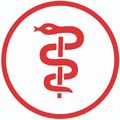Health in Gylias
Health in Gylias is at a high level overall, due to robust public health policies such as universal health care, universal vaccination, and presumed consent organ donation.
As of 2019, Gylias has a life expectancy of 81 years at birth. Rates of infant mortality mortality, diseases of affluence, and sexually transmitted diseases are very low. It has a high doctor to population ratio, of 3,4 per 1000 people, as well as a ratio of 9,6 nurses per 1000 people.
History
Health was poor for a majority of the population during the Xevden era, as a result of widespread poverty, infectious diseases, and a lack of public services. Various mutual organisations and aid groups were created during the Gylian ascendancy to provide private health insurance and care.
The first Gylian public health system was created in Alscia. Following and expanding on the Cacertian Empire health care model, the province used a mixture of public hospitals, regulated private providers, and national health insurance. The system produced significant increases in overall public health, including the eradication of infectious diseases such as typhoid fever, plague, and tuberculosis.
Healthcare was greatly expanded in the Free Territories, using a volunteer-based anarchist model of providing social services. Mass campaigns were carried out to improve hygiene, sanitation, and vaccinate the population, building on the Alscian precedent. The campaigns gave rise to itinerant health professionals, who traveled around the Free Territories to provide their services to areas in need.
Following Gylian independence, the National Health System was established in 1958 by consolidating existing institutions into a universal health care system.
The policies of health minister Régine Walras were shaped by the radical climate of the Golden Revolution: they included nationalisation of the pharmaceutical industry, firm crackdowns on vaccine hesitancy, and complete deinstitutionalisation of mental health care. She issued the influential Régine Walras Report in 1970, arguing that health promotion was just as important as medicine, and was the driving force behind the International Conference on Primary Health Care and resulting Etra Declaration in 1975.
The expansion of the internet in Gylias starting in the 1990s made possible the significant growth of e-health, including widespread adoption of electronic health records and electronic prescribing.
Health care
Healthcare in Gylias is provided by the National Health System (French: Système Nationale d'Santé, SNS). The NHS is free at all points of use, with universal eligibility for care, and funded from taxation.
The NHS is organised and managed on three levels: federal, regional, and municipal. Federally, it is overseen by the Ministry of Health, which determines the general agenda of health policy, regulates health care, and coordinates the activities of the health sector.
Delivery of health and care services is the responsibility of regional and municipal governments.
Primary care is generally provided at clinics and polyclinics by general practitioners and nurses. Secondary care is generally provided at hospitals where more specialist care is available.
The majority of health facilities are public. Private ones are comparatively rare, and tend to be based on anarchist models.
Pharmacy
Production and distribution of medicine in Gylias is entirely in public ownership. Research and production are carried out by various institutions and companies, overseen by the National Institute of Health Research and Inspectorate of Pharmaceutical Standards. Medicine is distributed freely by the National Pharmaceutical Administration.
Chemical patents are illegal. As a result, Gylian medicine is entirely composed of generic drugs.
Psychopharmacology is notably used by the NHS for certain treatments.
Antibiotic prescriptions are heavily restricted to avoid misuse and the risk of antibiotic resistance. Their use in animal husbandry is banned.
While the system of publicly-owned pharmacy has been successful at ensuring access to medicine and keeping costs low on average, the public monopoly is the main cause of relatively high government health expenditures: nearly 11% of GDP in 2019. It is estimated that without the pharmaceutical monopoly, overall healthcare expenditures would be approximately 8,5% of GDP.
Vaccination
Gylian vaccination policy is among the strictest in Tyran. Vaccination is compulsory for all children, with no opt-outs. It is provided free of charge. Proof of vaccination is required to be admitted to crèches and primary schools.
Parents who attempt to resist vaccination are prosecuted, and penalties can reach the level of removing children permanently from them and given to foster care or adoption.
Publishing anti-vaccine material or engaging in anti-vaccine activism is similarly illegal, and usually draws the most severe punishments stipulated in the Penal Code.
Approximately 50% of the population aged 65 or above is also vaccinated against influenza in 2018.
Drugs
Gylias has an extensive system of regulation and licensed distribution for drugs, overseen by the Controlled Substances Administration.
High tax rates are in place to discourage consumption of alcohol and tobacco, complemented by harm reduction policies such as promoting electronic cigarettes over traditional ones.
Organ donation
Organ donation is based on a presumed consent system.
Psychiatric care
Mental health care underwent complete deinstitutionalisation under the Free Territories; during the transition to Gylias, former psychiatric hospitals were physically demolished as well.
Today, psychiatric care is carried out through various community-based services, while acute in-patient care takes place at specialised hospitals.
Financing
Healthcare is legally defined as a public good, and can not be done for profit. Healthcare is mostly funded from taxation.
Private health facilities and providers are either non-monetary, or have their costs reimbursed by the NHS for services rendered.
Private health insurance is practically nonexistent.
Challenges
The central role of universal health care in the Gylian consensus has led some commentators to suggest that Gylian health policy is excessively wedded to the model established on independence and inflexible towards other approaches.
Symbols
Certain symbols are legally protected as medicinal symbols, and may only be used in a medical context. They include:
- The Bowl of Hygeia, the standard symbol of pharmacy.
- The Rod of Asklepios, the standard symbol of medicine.
- Red and green crosses, reserved as generic symbols of medicine and pharmacy.
Pharmacies use a green cross, the Bowl of Hygeia, or a combination of the two as a symbol:
Hospitals use a red cross, the Rod of Asklepios, or a combination of the two as a symbol:
Emergency medical services use the Star of Life symbol.




